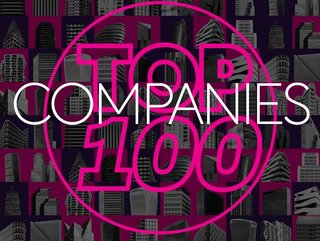FinTech Top 100 companies: A review

FinTech Magazine looks back on 2023 with a roundup of our Top 100 companies of the year.
At a time of much-hyped volatility and tumult in verticals like banking and cryptocurrencies, it is gratifying to be casting a light on the industry’s triumphs and victories.
Our Top 100 fintech companies of the year have all been revolutionising the delivery of financial services and disrupting the future of money.
Below, we round up the top 10 of our Top 100 companies in 2023. And for the full list, you can follow the link HERE.
10. Stripe
Stripe is a provider of financial infrastructure which says it's on a mission “to increase the GDP of the internet”. With dual headquarters in San Francisco and Dublin, the company's software is used by startups and large enterprises alike to accept payments and manage their finances online.
It was conceived by brothers and co-founders Patrick and John Collison – today CEO and President respectively – who have come a long way from their roots in rural Ireland to building this tech success story.
9. Goldman Sachs
Goldman Sachs is a global investment banking, securities and investment management services provider. Founded in 1869, the group has a storied history and today delivers a broad range of financial services to a large and diversified client base.
The company has offices in all the world's major financial centres – including New York, where it operates its global base – and employs nearly 40,000 people globally. Everything that Goldman Sachs does is filtered through its four key values of partnership, client service, integrity, and excellence.
8. Intuit
Intuit's technology platform helps users around the world navigate some of the most common day-to-day financial challenges businesses face today. It is probably best known for its accountancy software QuickBooks or tax platform Turbotax – but in recent years, Intuit has acquired complimentary products such as credit score tool Credit Karma (bought in 2020 for US$3.4bn) and email marketing client Mailchimp (acquired in 2021 for US$12bn).
This aggressive growth strategy has produced a beefed-up company with over US$12bn in revenue at the last count, and more than 17,000 members of staff.
7. American Express
American Express has existed for more than 170 years, but the company today is a lot different from its early beginnings. It started as a freight forwarding company, providing a way to deliver packages and other goods quickly along a network of rail lines from the US East Coast to Minnesota.
It had introduced a range of financial products and travel services by the 1950s and has been side-by-side with its clients through some of the most significant moments of the last century.
6. Morgan Stanley
For more than 85 years, Morgan Stanley has been helping corporations, individuals, institutions and governments move money and achieve their financial goals. One of the most reputable names in financial services, Morgan Stanley was founded in 1935.
Today, the business employs over 70,000 people and is headed up by Chairman and CEO James Gorman. He has been CEO at Morgan Stanley since 2010, having previously held a succession of executive positions at Merrill Lynch and McKinsey – as well as being an attorney by training in his native Australia.
5. Wells Fargo
Wells Fargo is a financial services company with approximately US$1.9tn in assets. Over 170 years old, the company offers banking, investment, mortgages, and financing for both individuals and businesses. Its astronomical scale is demonstrated in some impressive stats: Wells Fargo operates offices in more than 40 markets and employs a quarter of a million staff. In the United States alone, it reaches one-third of all households – equivalent to around 40 million families.
The business today is led by Chief Executive Officer and President Charles W. Scharf, a financial services veteran with more than 25 years of experience in leadership roles in the banking and payments industries – including as CEO of Bank of New York Mellon for two years and CEO of Visa for four years.
4. Bank of America
Bank of America is one of the world's largest financial institutions, providing a full range of banking, investing, asset management and other financial and risk management products and services to a full gamut of clients – from individuals to small-and-middle-market businesses and large corporations.
The company services approximately 56 million consumers and small businesses in the US, from where it maintains a headquarters in Charlotte, North Carolina. It is one of the world's foremost wealth management companies and is a global leader in corporate investment banking and trading, employing roughly 215,000 people.
3. Mastercard
Mastercard is the world’s second-largest payment-processing corporation. The financial behemoth offers a range of transaction and related payment services. Processing the payments between a merchant's bank and the banks of consumers, Mastercard processes billions of different transactions daily. Today, the payments processors aim to reshape the digital economy so individuals, financial institutions, businesses and even governments can realise their ambitions.
In recent times, the payment processor has expanded its mobile contactless payments programme, expanding into new markets including the Middle East. The company has made numerous strategic acquisitions in multiple markets too, including Australian reward programme manager company PinPoint in 2014, as well as Vocalink, Finicity, Ekata and CipherTrace, all of which have expanded Mastercard’s range of payment flows.
2. JPMorgan Chase
For over 200 years, JPMorgan Chase & Co has provided financial solutions for consumers, small businesses, corporations, governments and institutions. Its history is one of mergers and acquisitions, rooted in the very fabric of the United States. The group dates back to 1799 when the New York State legislature chartered The Manhattan Company to supply the city with drinking water. A provision in the company's charter allowed it to use surplus capital for banking operations, and The Bank of the Manhattan Company was founded.
Nowadays, JPMorgan Chase is a truly international financial services firm serving clients in over 100 different countries, with assets of US$3.2tn. In its most recent full-year accounts, it recorded a total net revenue of US$128.69bn and a net income of US$37.67bn. It is the largest corporate and investment bank in the world, employing hundreds of thousands of people globally. The business has been led since 2006 by Chairman and Chief Executive Officer Jamie Dimon, who was previously President of Citigroup following Citicorp's merger with Travelers.
1. Visa
Visa is one of the most instantly recognisable brands in financial services, operating one of the largest digital payment networks anywhere on the planet. According to the company, there are currently over 4bn Visa cards in circulation, helping facilitate more than 250bn transactions a year. It's not just on the consumer side that Visa is an important player; the firm, which is based in California, boasts 80 million merchant locations distributed throughout 200 countries and territories, demonstrating the unquestionably international scale of this payments behemoth.
The market opportunity is expanding: the company is confident it can help to convert some of the US$18tn in consumer spending still made in the form of cash and cheques into digital payments, helping to solidify the cashless revolution and cement Visa's place in global commerce.
The business employs around 26,500 people and is listed on the New York Stock Exchange. It was led until February 2023 by Alfred F Kelly Jr, a stalwart of the payments industry who has been with Visa since 2016 and previously spent 23 years at American Express. But it was announced late last year that, from February onwards, Ryan McInerney, President of Visa since 2013, would begin transitioning to the role of CEO with Kelly becoming Executive Chairman.
******
For more insights from FinTech Magazine, you can see our latest edition of FinTech Magazine here, or you can follow us on LinkedIn and Twitter.
You may also be interested in our sister site, InsurTech Digital, which you can also follow on LinkedIn and Twitter.
Please also take a look at the playlist for our latest hybrid event, FinTech LIVE London, to learn all about the latest trends in fintech.
******
BizClik is a global provider of B2B digital media platforms that provides executive communities for CEOs, CFOs, CMOs, Sustainability Leaders, Procurement & Supply Chain Leaders, Technology & AI Leaders, Cyber Leaders, FinTech & InsurTech Leaders as well as covering industries such as Manufacturing, Mining, Energy, EV, Construction, Healthcare, and Food & Drink.
BizClik – based in London, Dubai, and New York – offers services such as Content Creation, Advertising & Sponsorship Solutions, Webinars & Events.
- WEF and Cambridge University Unveil Future of Fintech ReportFinancial Services (FinServ)
- Why Recurly is Trusted by Industry-leading OrganisationsFinancial Services (FinServ)
- McKinsey & Company Heralds new era for FintechFinancial Services (FinServ)
- Nubank: Mexico Segment Launches WhatsApp Payments SolutionFinancial Services (FinServ)







